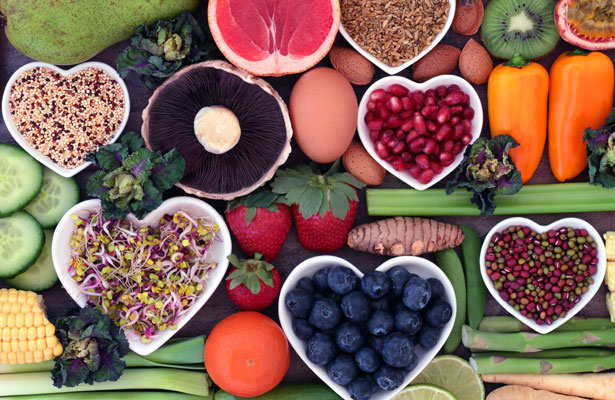
Eating right and staying fit are important no matter what your age. As we get older our bodies have different needs, so certain nutrients become especially important for good health. Look over your meal choices before you decide to make sure your diet is packed with nutrition!
Calcium and Vitamin D
Older adults need more calcium and vitamin D to help maintain bone health. Enjoy three servings of calcium-rich foods and beverages each day. Fortified cereals and fruit juices, dark green leafy vegetables, canned fish with soft bones, milk and fortified plant beverages are great choices. Take a calcium supplement or multivitamin? Choose one that contains vitamin D.
Vitamin B12
Are you over 50? Chances are you don’t get enough vitamin B12. Fortified cereal, lean meat and some fish and seafood are sources of vitamin B12. Sometimes your doctor may prescribe a vitamin B12 supplement.
Fiber
Fiber-rich foods help you to stay regular. Are you eating enough? Fiber also can help lower your risk for heart disease and prevent Type 2 diabetes. Choose whole-grain breads and cereals, and more beans and peas. Add plenty of fruits and vegetables, too!
Potassium
Increasing potassium along with reducing sodium (salt) may lower your risk of high blood pressure. Fruits, vegetables and beans are good sources of potassium. Add flavor to food with herbs and spices.
Do You Know Your Fats?
Foods that are low in saturated fats and trans fat help reduce your risk of heart disease. Most of the fats you eat should be polyunsaturated and monounsaturated fats, which can be found in nuts, seeds, avocados, olive oil and fish.